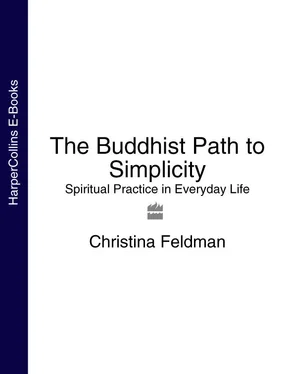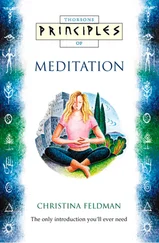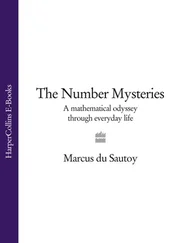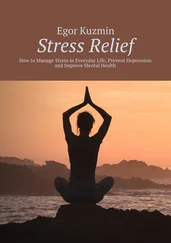Renunciation comes effortlessly to us in times of calm and ease. Nothing stops; sounds, sights, thoughts, and feelings all continue to arise and pass—seen and appreciated wholeheartedly. Yet none of them gains a foothold in our minds and hearts, our inner balance and well-being is undisturbed; there is a natural letting go. There are times in our lives when calm and balance seem to be a distant dream as we find ourselves lost in turmoil, struggle, or distress. In those moments we remember the freedom of being able to let go, yet the intensity of our struggle overwhelms us. In those moments, the first step towards peace is to recognize that we are lost. In those moments, it is not more thinking, analyzing, or struggle that is required; instead we are invited to look for simplicity. In these moments of complexity, letting go requires investigation, effort, and dedication—recognizing the sorrow of being entangled.
The Buddha spoke of wise avoidance, a word that may carry for us associations of denial or suppression. There is a difference between wise avoidance and suppression. Suppression is the unwillingness to see; wise avoidance is the willingness to see but the unwillingness to engage in pathways of suffering. In moments of intense struggle, renunciation happens in a different way; by learning to step out of the arena of contractedness. We turn our attention to the fostering of calm and balance. Bringing our attention into our body, to listening, to touching, to breathing, we learn to loosen the grip of struggle and confusion. Recovering a consciousness of expansiveness and balance, the understanding of the nature of our struggle comes more easily to us and we may discover we can let go.
It is easy to let go when there is nothing that we particularly crave or resist. Yet it is in the midst of our deepest obsessions and resistances that renunciation holds the power to transform our heart and world. Our capacity to let go is often clouded by ambivalence and reluctance. We know we suffer through overeating, but the second plate of food really does taste so good. We know that our anger towards another person makes us suffer, but if we were to let it go they may get away with the suffering they inflicted. We know that fantasy is a poor substitute for happiness, but its flavor is pleasurable. We know we may suffer through exaggerated ambition, but the feeling of pride when we attain our goals justifies the pain. Pleasure and happiness are too often equated with being the same; in reality they are very different. Pleasure comes. It also goes. It is the flavor and content of many of the impressions we encounter in our lives. Happiness has not so much to do with the content or impressions of our experiences; but with our capacity to find balance and peace amid the myriad impressions of our lives. Treasuring happiness and freedom, we learn to live our lives with openness and serenity. Not enslaved to the pleasant sensation, we no longer fear the unpleasant. We love, laugh, and delight, and hold onto nothing.
The appetite of craving arises from the pain of disconnection. The pain of believing ourselves to be incomplete or inadequate compels us to seek from the world all that we feel unable to offer ourselves. This pain of disconnection is not always acute; at times we describe it as boredom, forgetting that boredom is never a description of reality but a description of a state of mind superimposed upon reality. Boredom is often a surrender of sensitivity, clouding our capacity to see, listen to, and touch each moment as if we have never encountered it before. The antidote to boredom is not more sounds, sensations, and experiences, but recovering our capacity to see anew in each moment. The world we think we know, the people we think we know, the sounds and experiences we have encountered countless times before, come alive to us in new ways each moment we give them our wholehearted attention. Our storehouse of images, associations, history, and concepts is burned down in the light of compassionate, full attention.
Renunciation is not the territory of saints or ascetics but the territory of each one of us who treasures freedom. Each moment we let go, we embody freedom and follow the pathway of happiness. It is a present moment practice; every moment is the right moment to learn how to let go.
Take a few minutes to sit quietly, relax your body, close your eyes, and breathe out. Reflect for a moment upon the places in your mind and heart you visit the most often, yet feel to be the places of greatest sorrow or struggle. A failed relationship, a childhood hurt, a tension with another person, a frustrated hope. Be aware of the stickiness and tightness of these places, felt in your body, mind, and heart.
What is needed for you to be able to let go, to find a new beginning, to find peace? Is it forgiveness, compassion for yourself or another, tolerance, or understanding? How could you find simplicity in this moment?
Reflect upon the times of greatest happiness in your life—found in intimacy with another, moments of true appreciation and sensitivity in nature, times alone, a moment when you have felt that this moment is complete.
Be aware of what it is that opens the doors of appreciation, connection, and calm; that makes the expectation, fear, wanting, and distractedness fall away. Take some time to hold in your heart the question,
“What in this moment is lacking?”
Upon goodness of heart is built wise attention;upon wise attention is built liberating wisdom. THE BUDDHA
IN the midst of some of the darkest moments and most tormented events in human history there have emerged individuals who stun us with profound but simple acts of goodness. A homophobic inmate on death row reaches out to hold the hand of a prisoner dying of AIDS. A teenage monk, his body broken by torture, meditates to extend compassion to his torturer. A young girl, her body devastated by napalm burns, finds the generosity of heart to offer forgiveness to the pilot who dropped the bomb. In a single gesture, through a few words or simple acts of kindness, someone’s world is transformed. Integrity is the gift of a wise and loving heart. There is no one whose life is not enriched by the kindness, respect, and compassion that finds its source in integrity. James Russell Lowell succinctly expressed it saying, “All the beautiful sentiments in the world weigh less than a single lovely action.”
We may not find ourselves in desperate situations that ask for heroic actions. Integrity finds expression in the countless moments in our lives that invite us to interact with the world from a deep inner place of honesty, respect, and compassion. It is easier to be motivated by the wish for personal advantage, comfort, and gratification than to be guided by ethics and wisdom. Yet the healing of our planet, our communities, and our families asks us to find within ourselves the goodness of heart that seeks to protect and enrich, rather than to exploit or harm.
Конец ознакомительного фрагмента.
Текст предоставлен ООО «ЛитРес».
Прочитайте эту книгу целиком, купив полную легальную версию на ЛитРес.
Безопасно оплатить книгу можно банковской картой Visa, MasterCard, Maestro, со счета мобильного телефона, с платежного терминала, в салоне МТС или Связной, через PayPal, WebMoney, Яндекс.Деньги, QIWI Кошелек, бонусными картами или другим удобным Вам способом.












